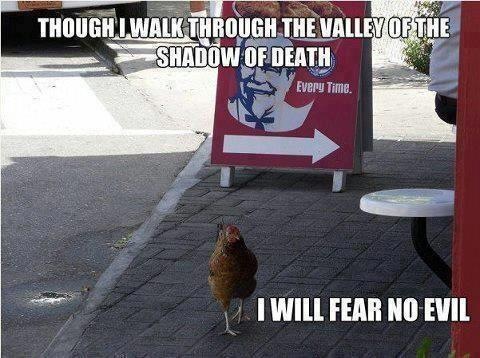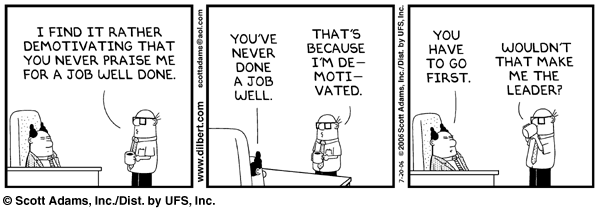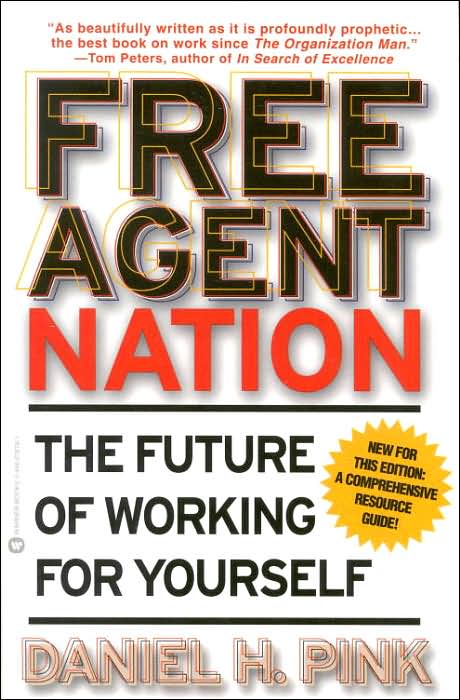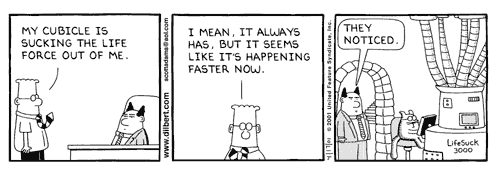Fearlessness: 3 Things You Can Learn From Special Ops And Navy SEALS
ne-man army." It's a phrase that gets thrown around lightly. But for 7 hours, Hector Cafferata was exactly that. On November 28, 1950 during the Korean war, the then 21-year-old took on an entire regiment of Chinese soldiers, defending his group of badly wounded friends. He did it in 30 degrees-below-zero-weather while in his socks. He had only his eight shot M1 Garand and when grenades were thrown at him he batted them away with a shovel. I'm going to…
7 minutes
Keys To Success: 6 Traits The Most Successful People Have In Common
anford MBA school professor Jeffrey Pfeffer looked at the research on success and power along with studying the lives of such high achievers as LBJ and Robert Moses. He identified six traits that were keys to success. Pfeffer was thorough in that he did not just note the qualities all successful people had, but specifically sought out the elements that were present in the powerful and lacking in those who had accomplished less. Pfeffer pulls no punches. These are not all…
5 minutes
Genius And Insanity: Do You Need To Be Crazy To Be The Best?
search says experts practice for 10,000 hours. That's a lot of hours. A crazy amount of hours, one might say. I've posted a lot about "deliberate practice" and the work habits of geniuses. They're relentless. Via Daily Rituals: How Artists Work “Sooner or later,” Pritchett writes, “the great men turn out to be all alike. They never stop working. They never lose a minute. It is very depressing.” Here's the question: Is that just something that obsessed, crazy people do? Does this prove the often-theorized…
7 minutes
Qualities Of A Leader: How To Go from “Good Manager” To “Great Leader”
metimes management and leadership are used interchangeably. Other times "management" is derided as unnecessary bureaucracy and "leadership" is an elusive ideal, always in short supply. What's really the difference? John Kotter, a leadership expert who teaches at Harvard, does a good job of distinguishing the two. Via John P. Kotter on What Leaders Really Do Management controls people by pushing them in the right direction; leadership motivates them by satisfying basic human needs. And this offers insight as to how you can go…
3 minutes
Work Smarter Not Harder: 17 Great Tips
Dan Pink's Free Agent Nation: The Future of Working for Yourself he closes the book with a long, excellent list of "Work Smarter Not Harder" type advice for people who want to start working for themselves. Frankly, the list is so good I think everyone would benefit from it. Below are my favorites. I've included links to research and prior posts backing Dan's advice. via Free Agent Nation: The Future of Working for Yourself: Make a "to don't" list. Another gem from the…
4 minutes
Negotiation Process: The #1 thing Harvard tells MBA’s about getting a big salary
hey Need To Like You." About 3:30 into the video below: Here's the equation for getting what you want. Cutting to the chase: You want to get more. You want more money, a better offer, a better deal; here are the components of what you need to do. First, they need to like you. That's the first component. The things you do that make them like you less make it less likely that you are going to get what you want...…
3 minutes
Presentation Techniques: 6 Secrets To Giving Amazing Presentations
esentations can be unbearable. We average 5.6 hours each week in meetings and 69 percent of us feel they aren't productive. Which presentation techniques can help you improve your delivery and convince your audience? 1) To Inspire, Start With "Why" not "What" What magic do both the speeches of Martin Luther King and the marketing of Apple have that move us to believe and act? Simon Sinek, author of Start with Why: How Great Leaders Inspire Everyone to Take Action,…
4 minutes
Positive Energy Leads To Promotions. Here’s How You Can Increase It.
Positive Energy Is What Markets Ideas Within An Organization Positive energy is powerful. No, this has nothing to do with crystals, karma, aligned chakras and Pollyanna optimism. Researchers assessed who had it in companies and were able to determine which people attract others and which projects generate enthusiasm -- and success. Via The Hidden Power of Social Networks: Understanding How Work Really Gets Done in Organizations: We assessed energy in seven large groups in different organizations by using social network analysis…
4 minutes








